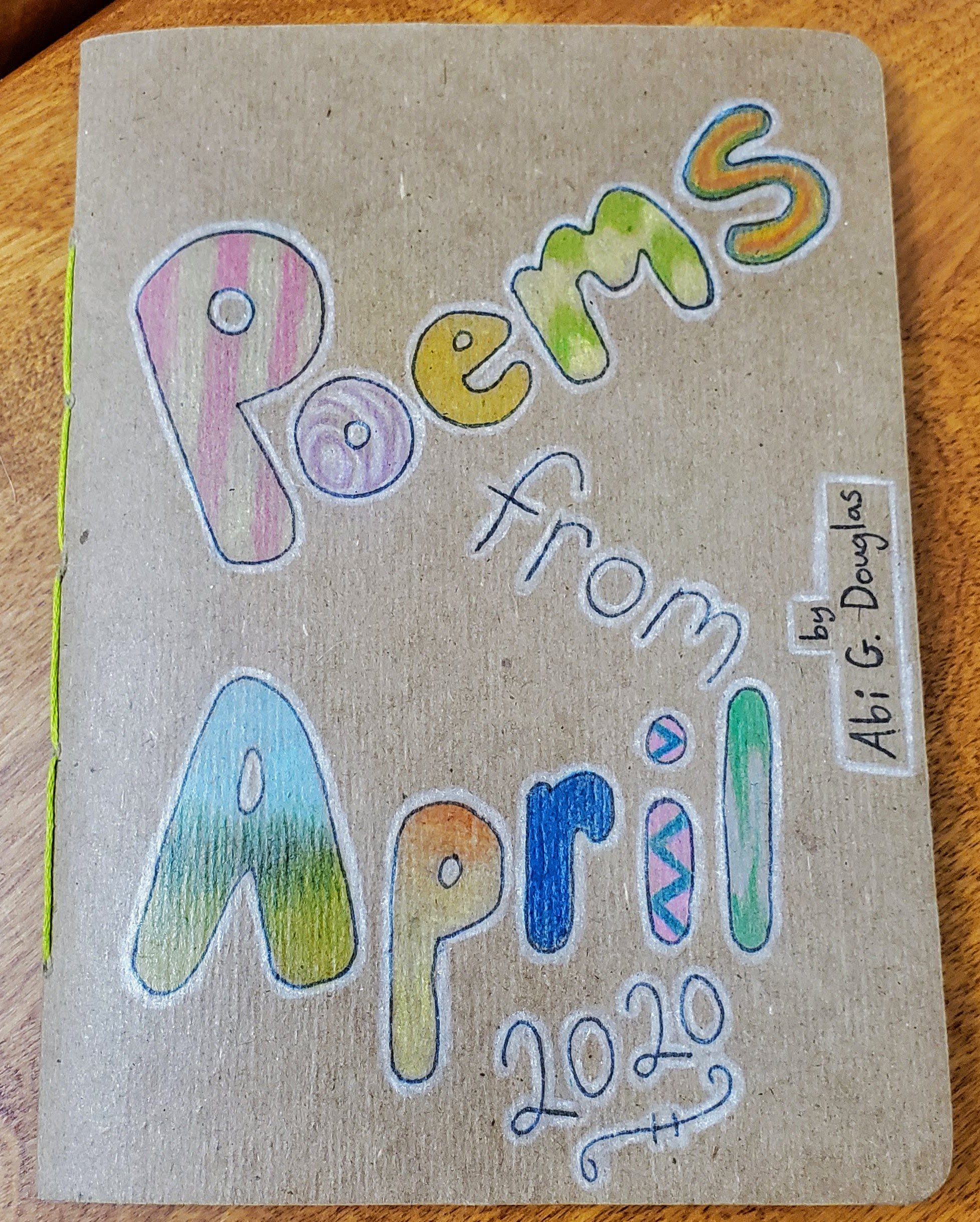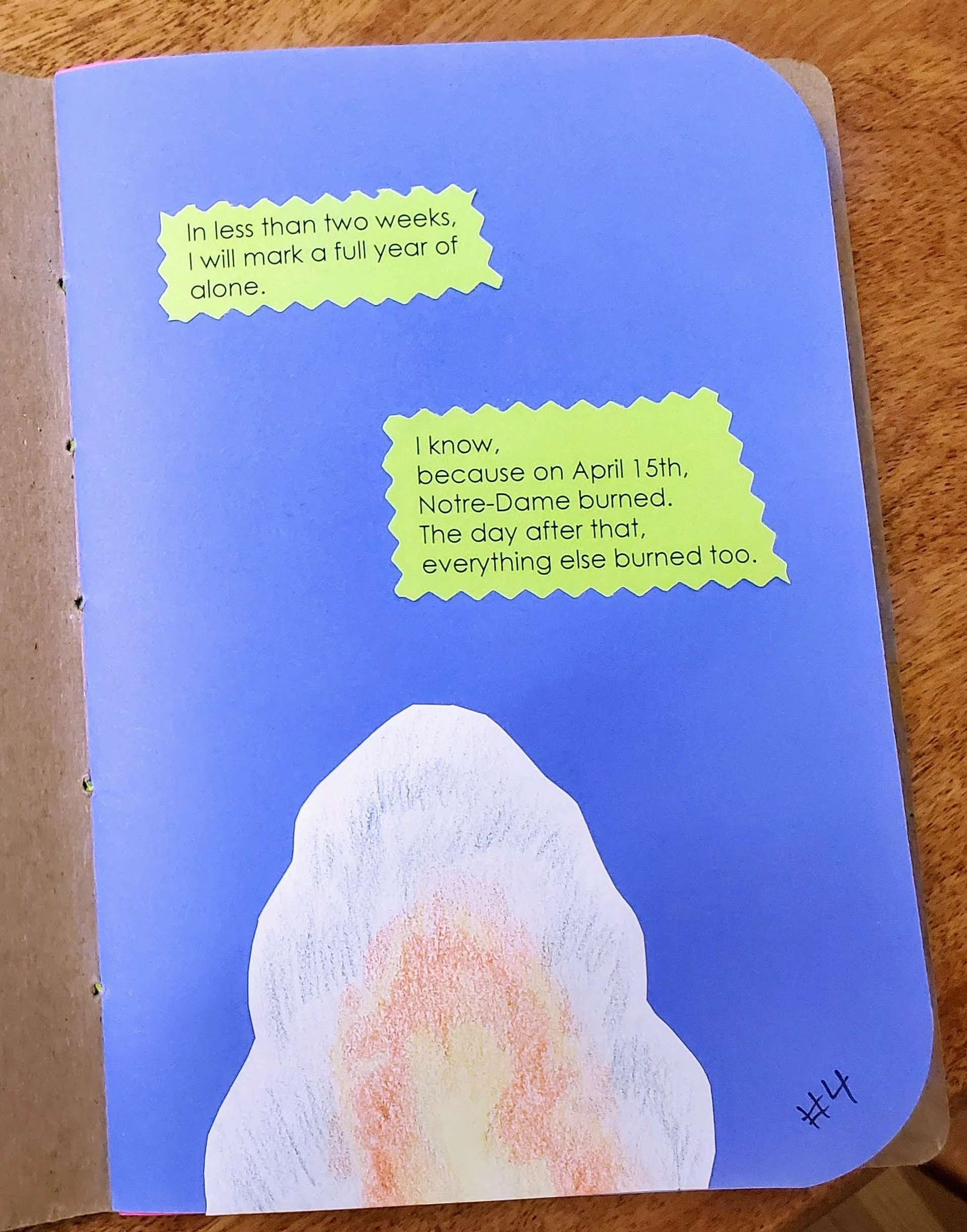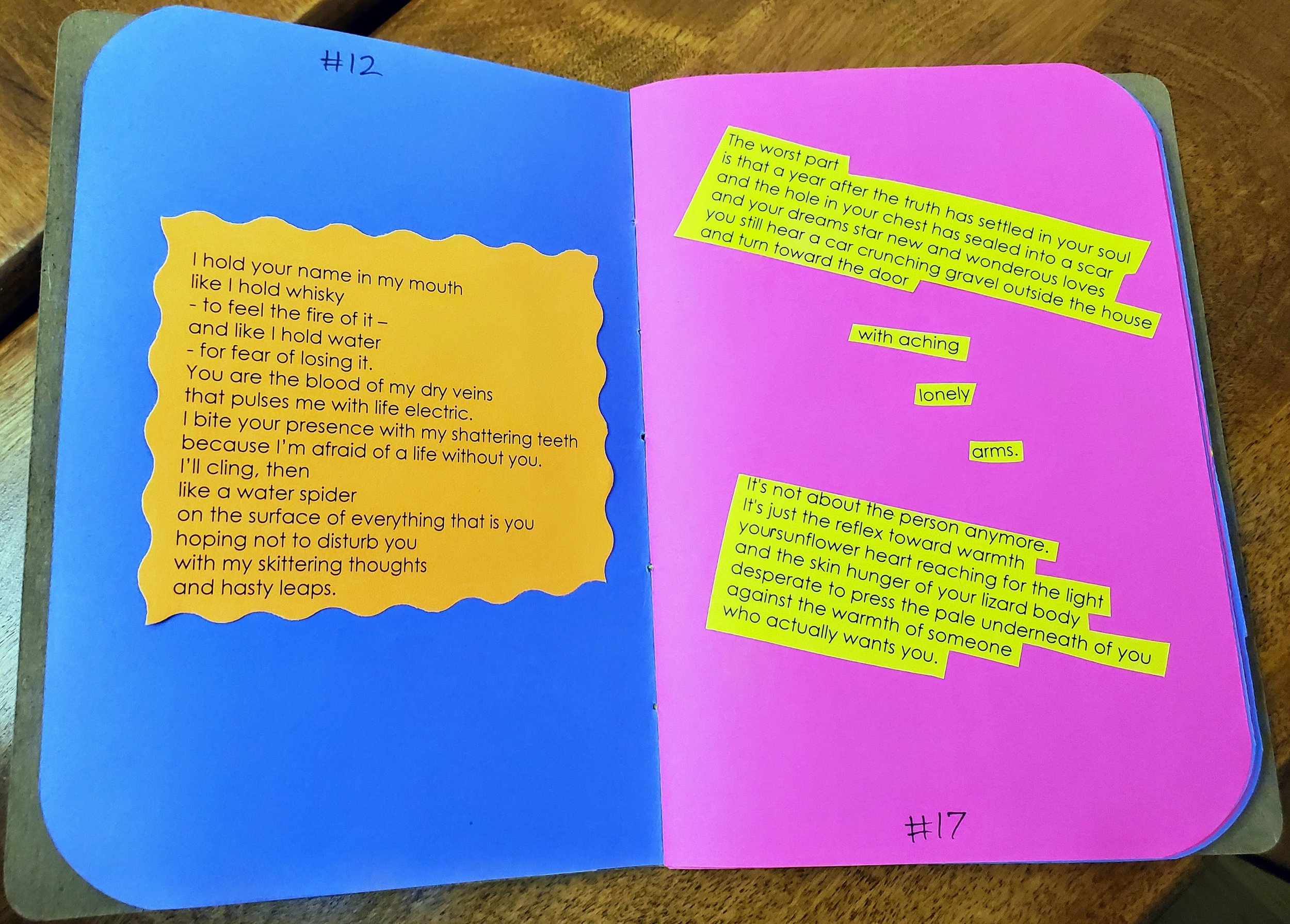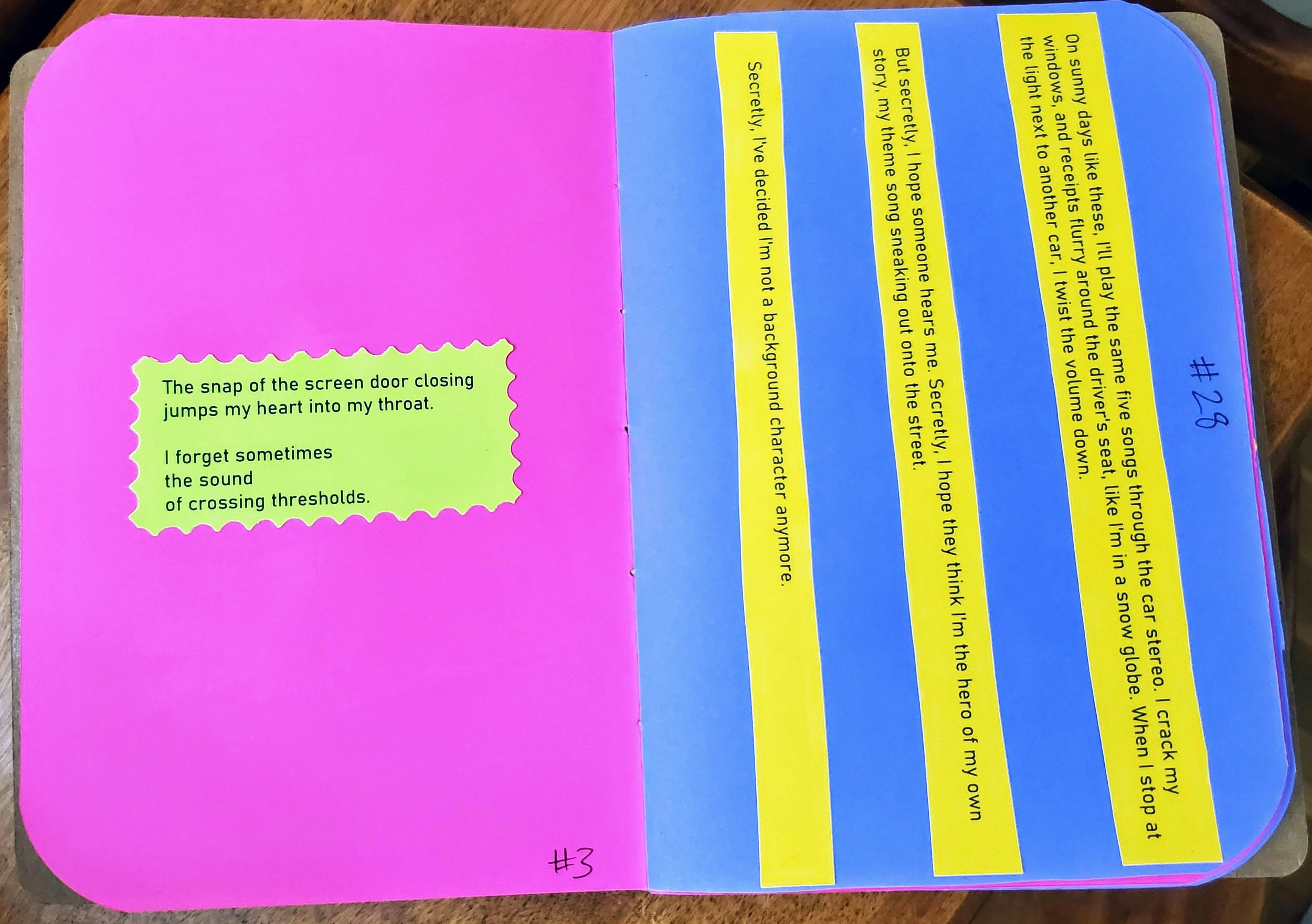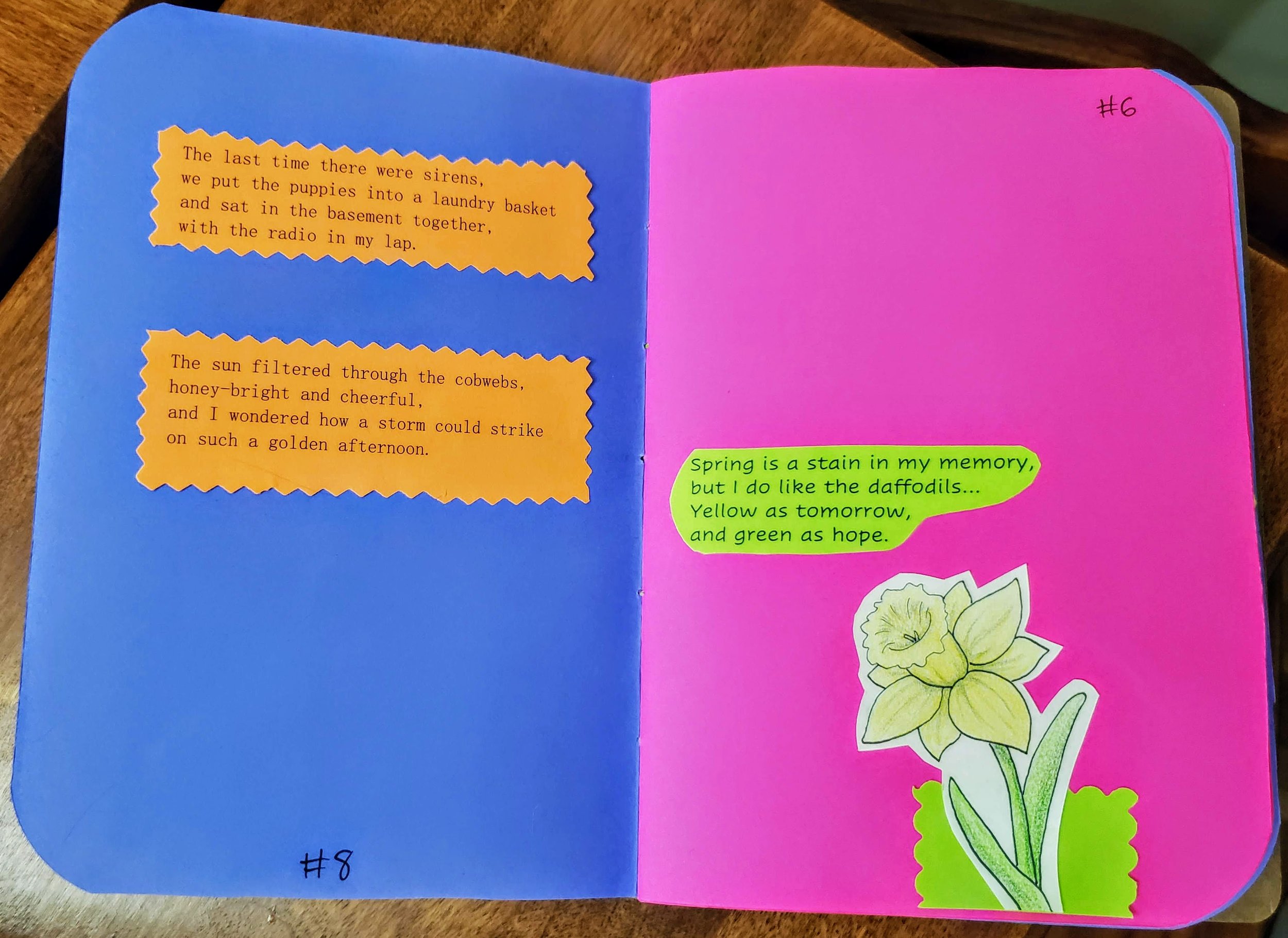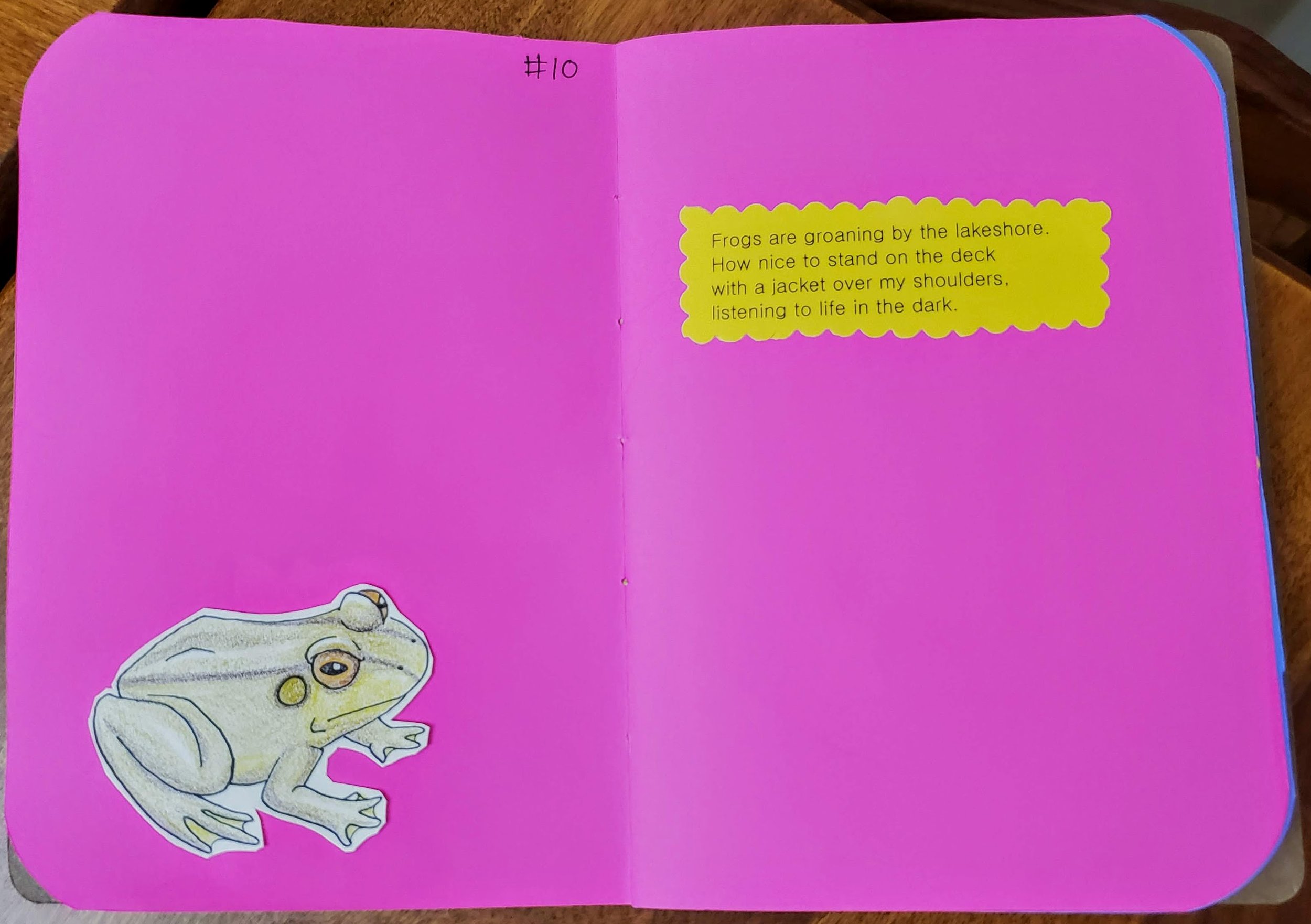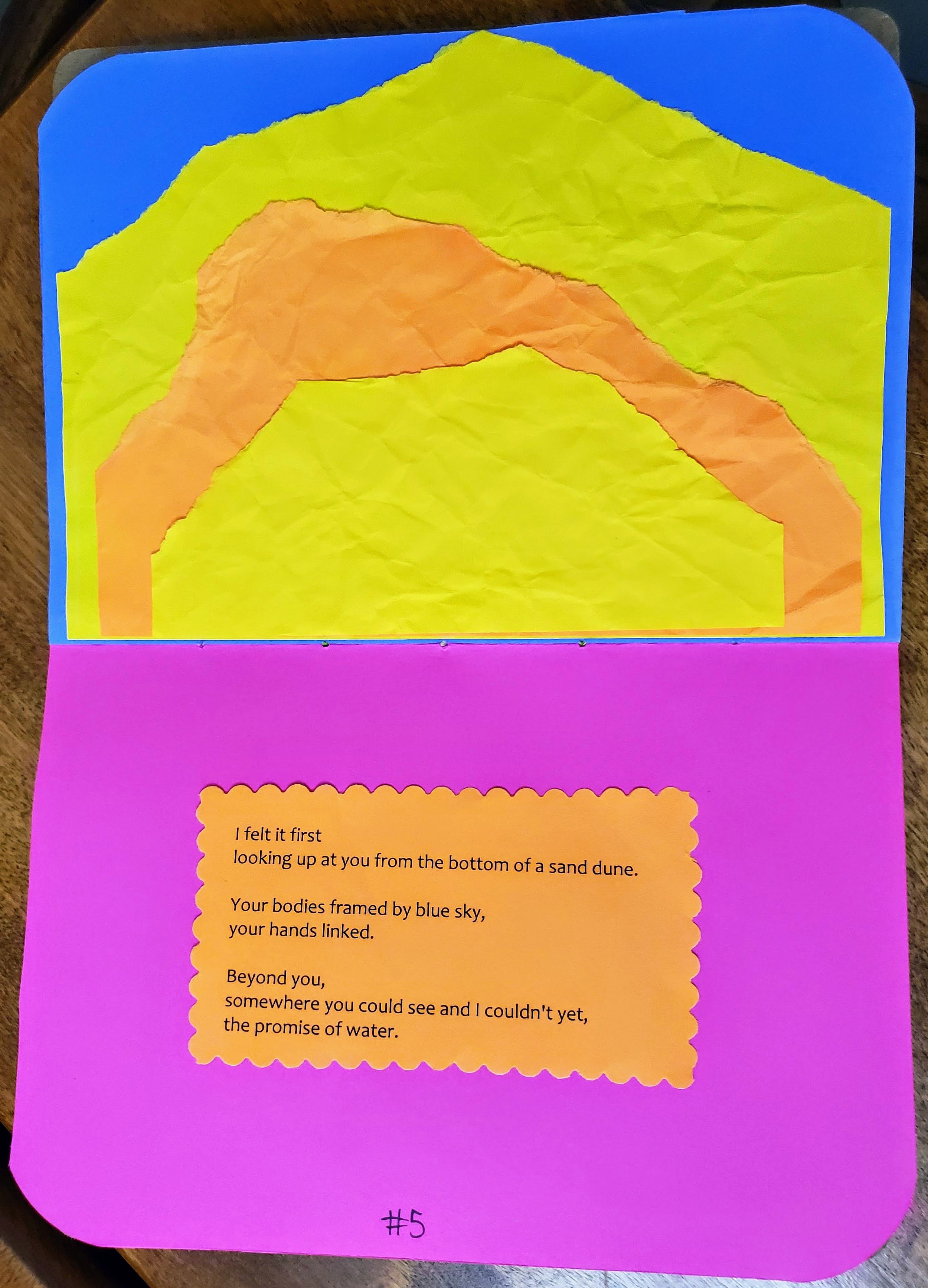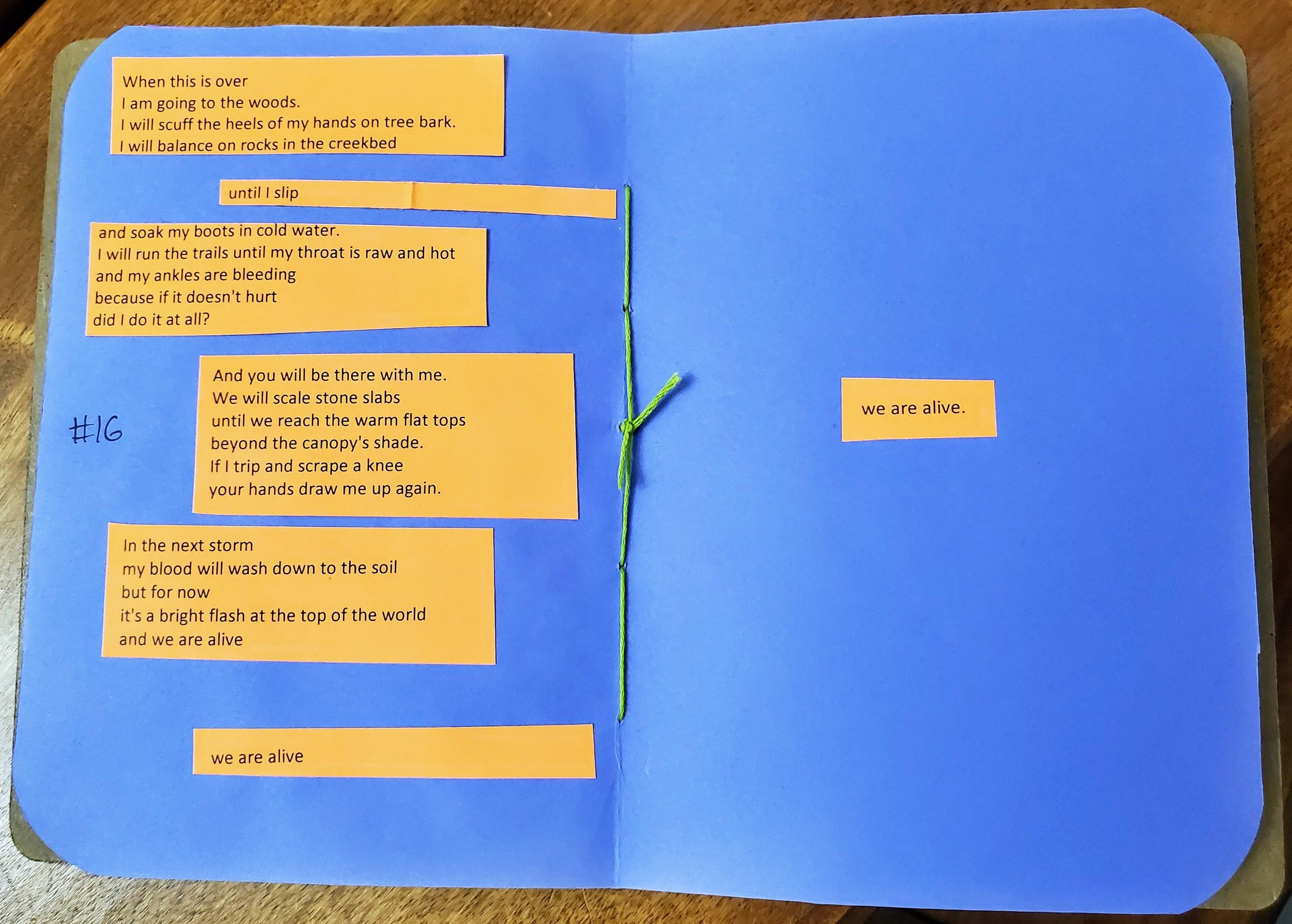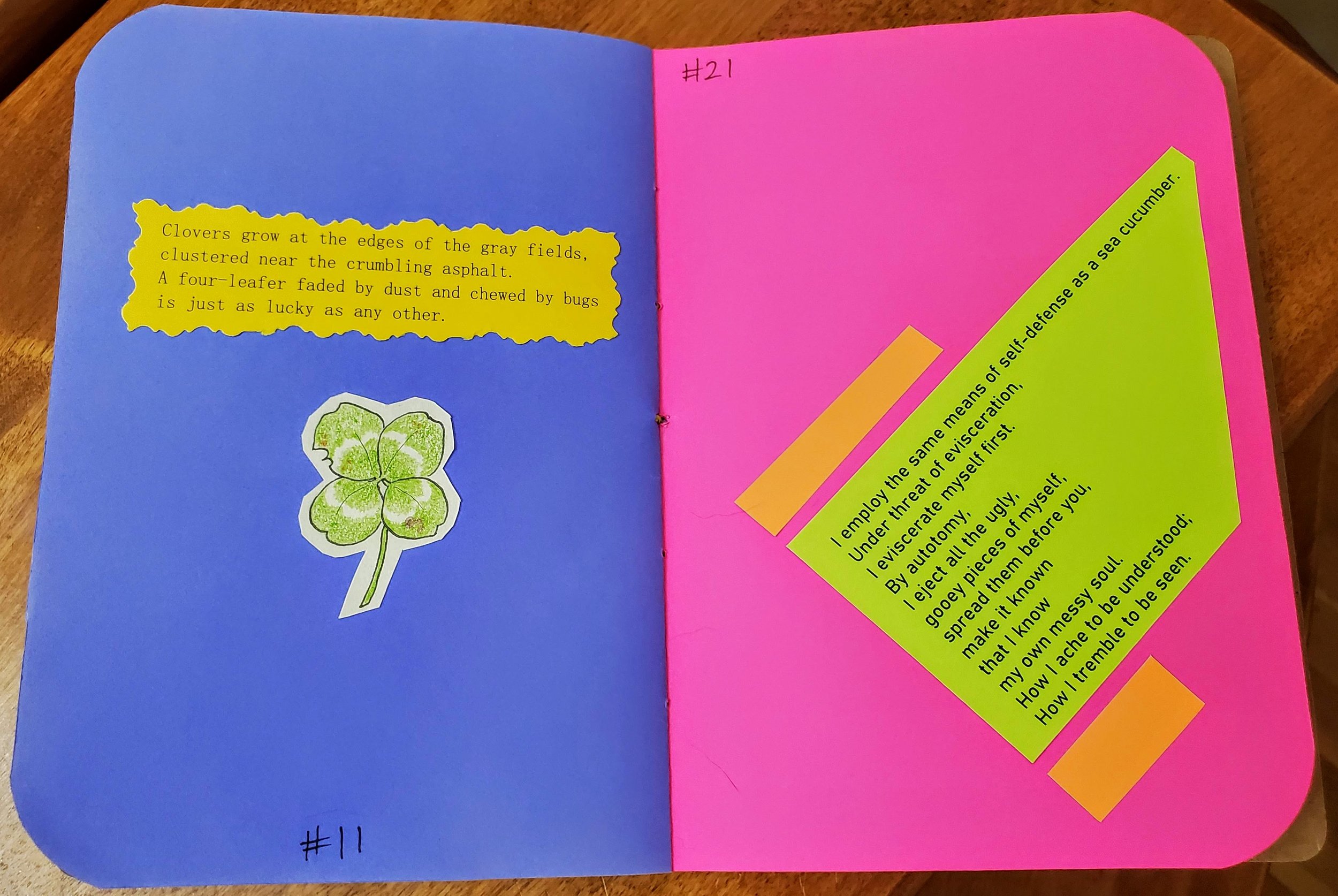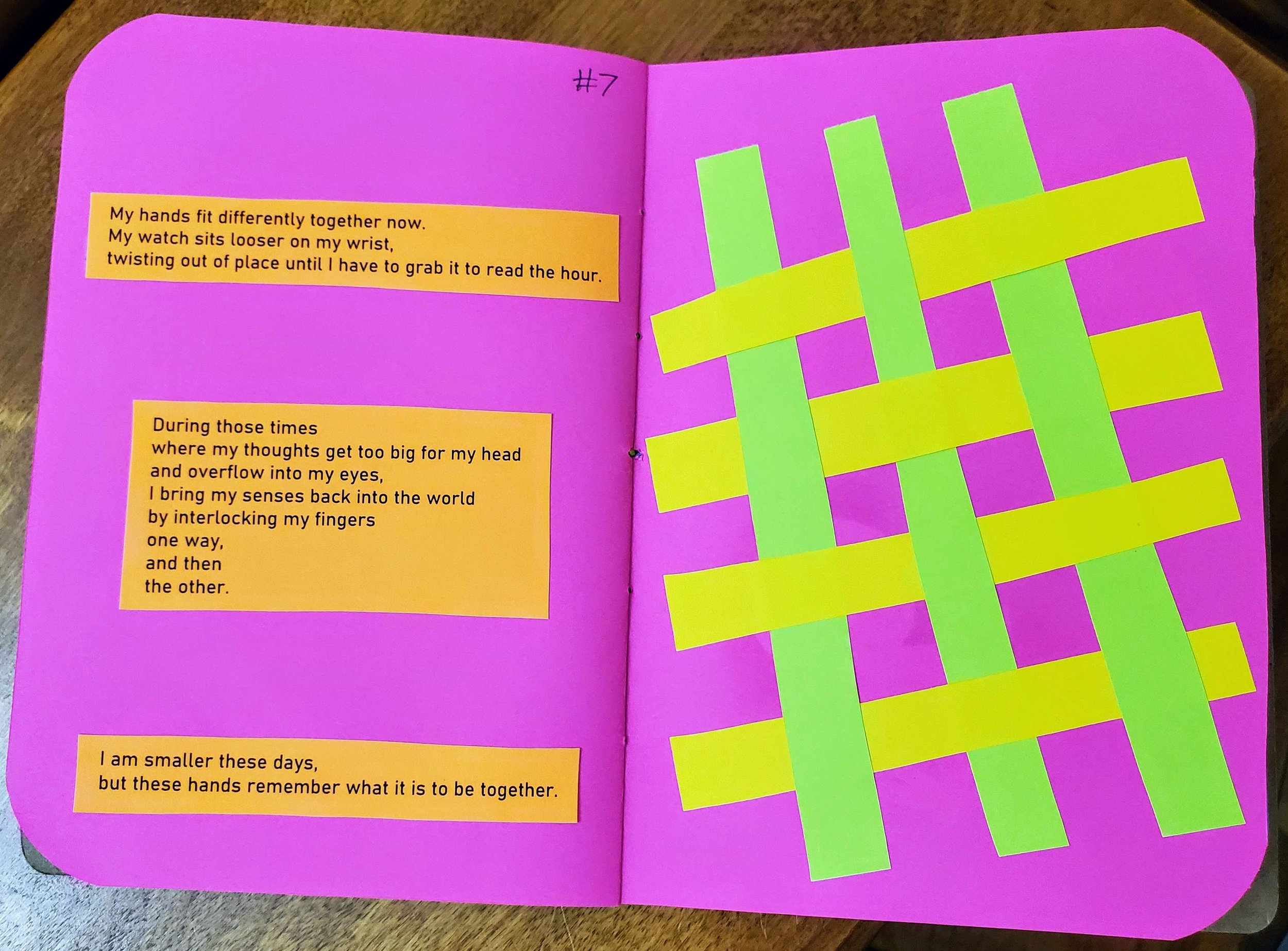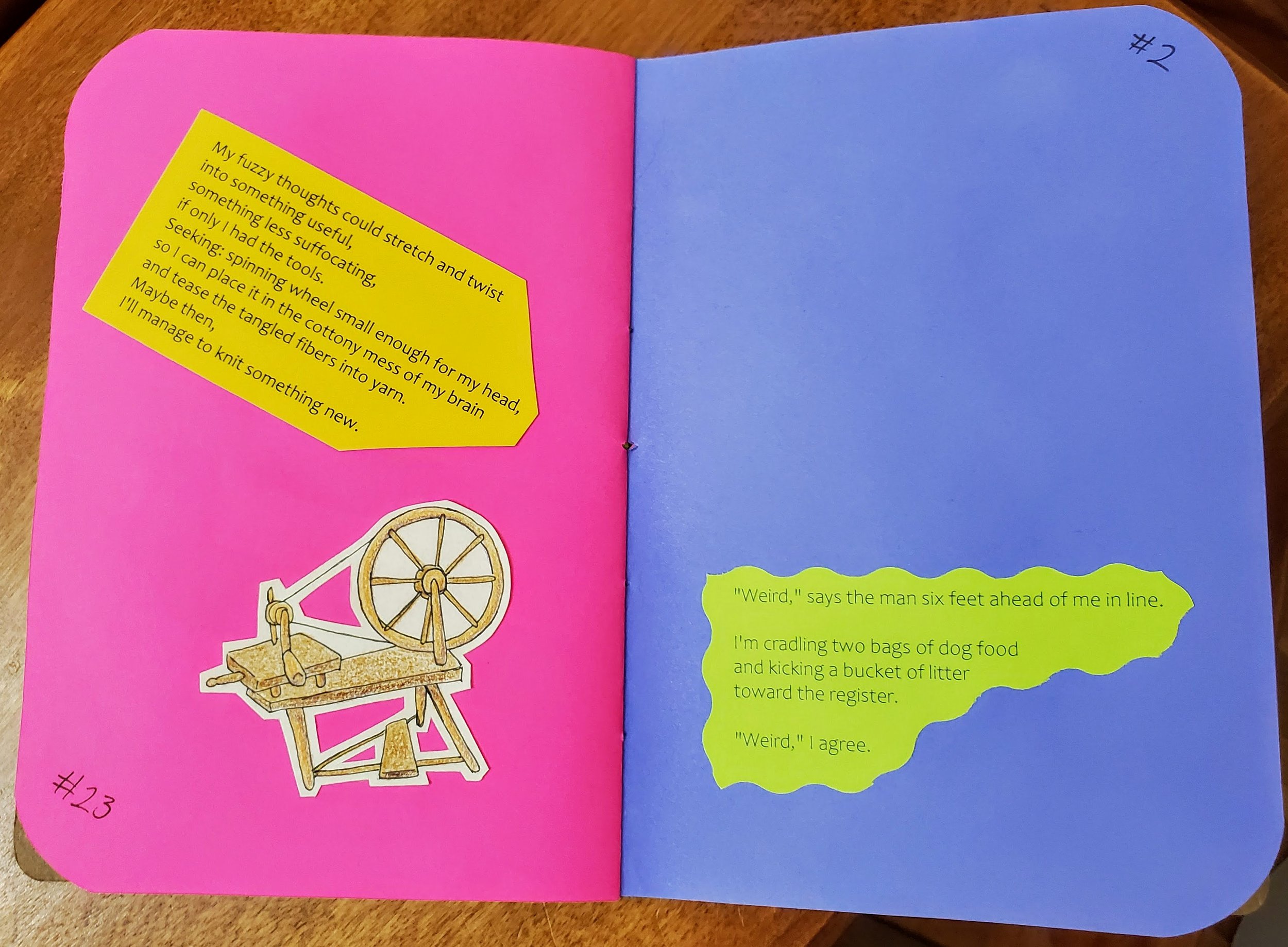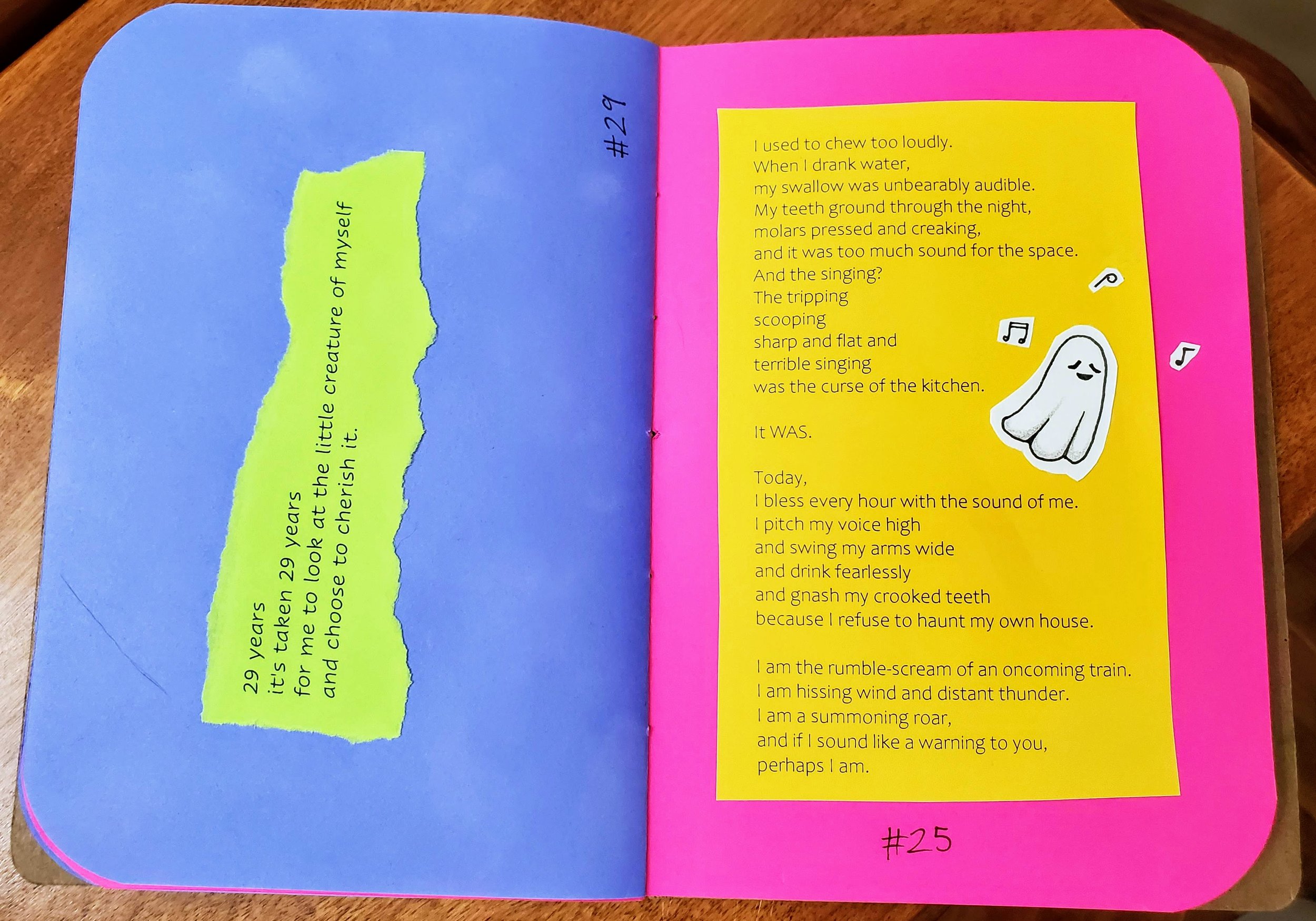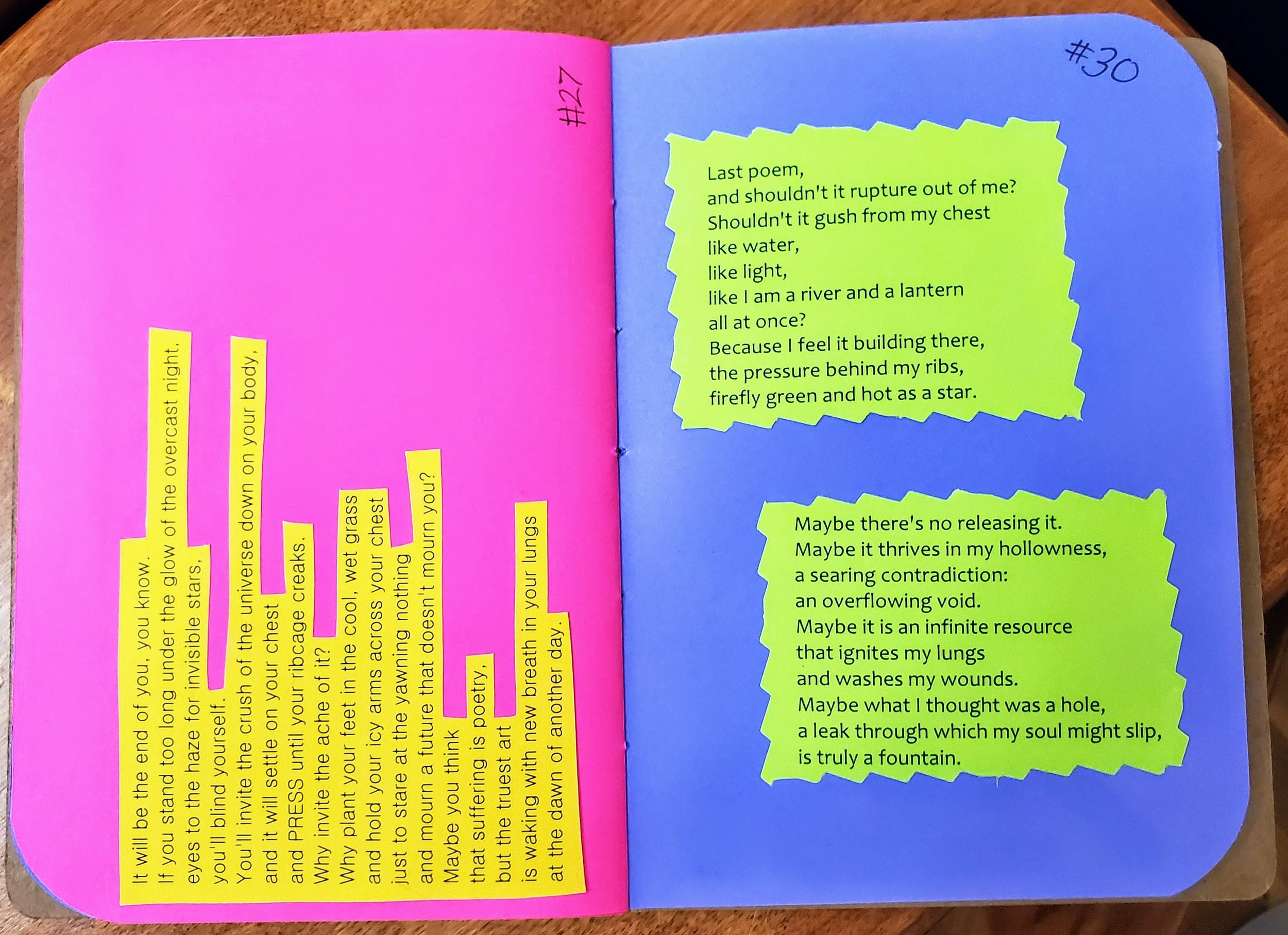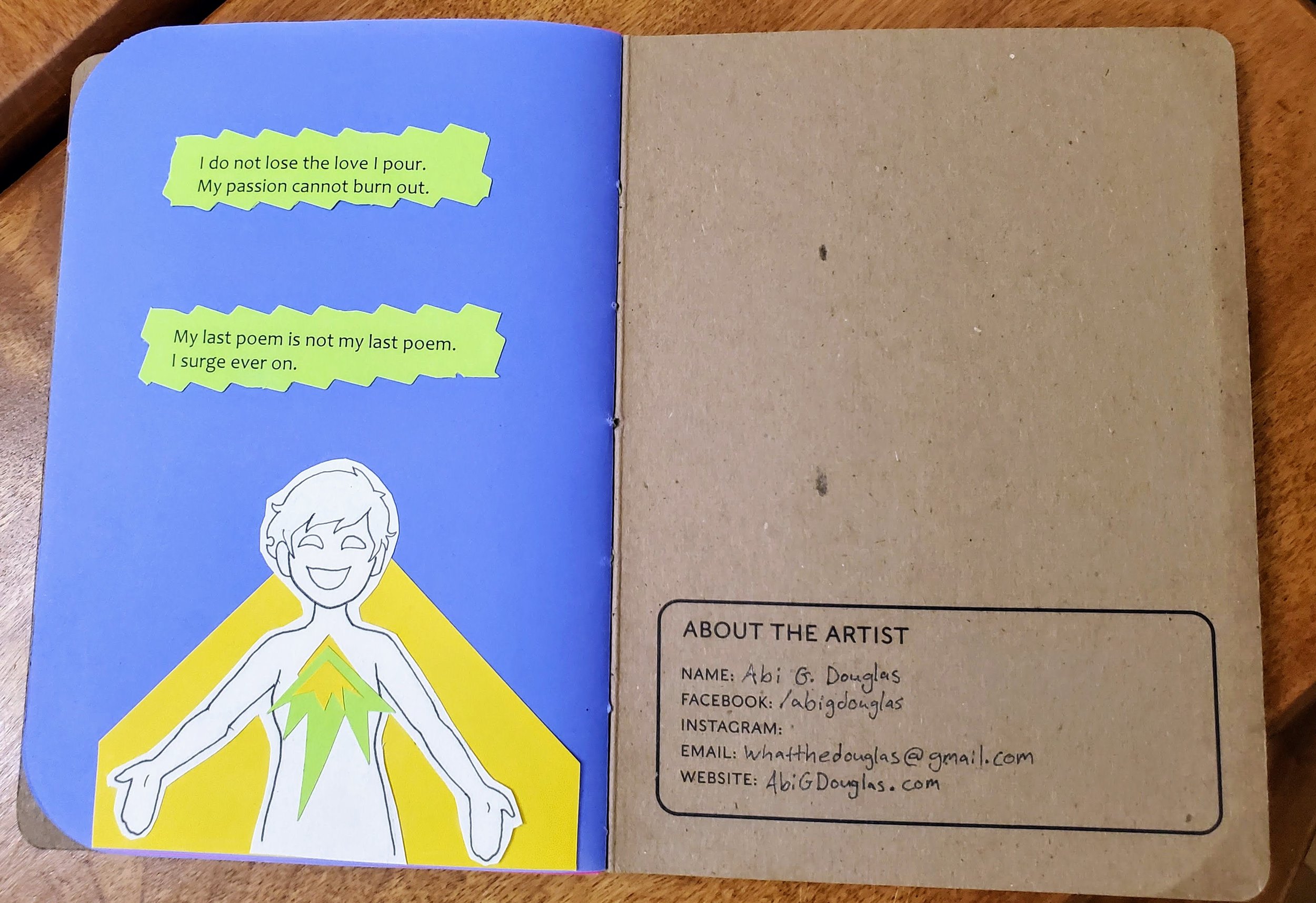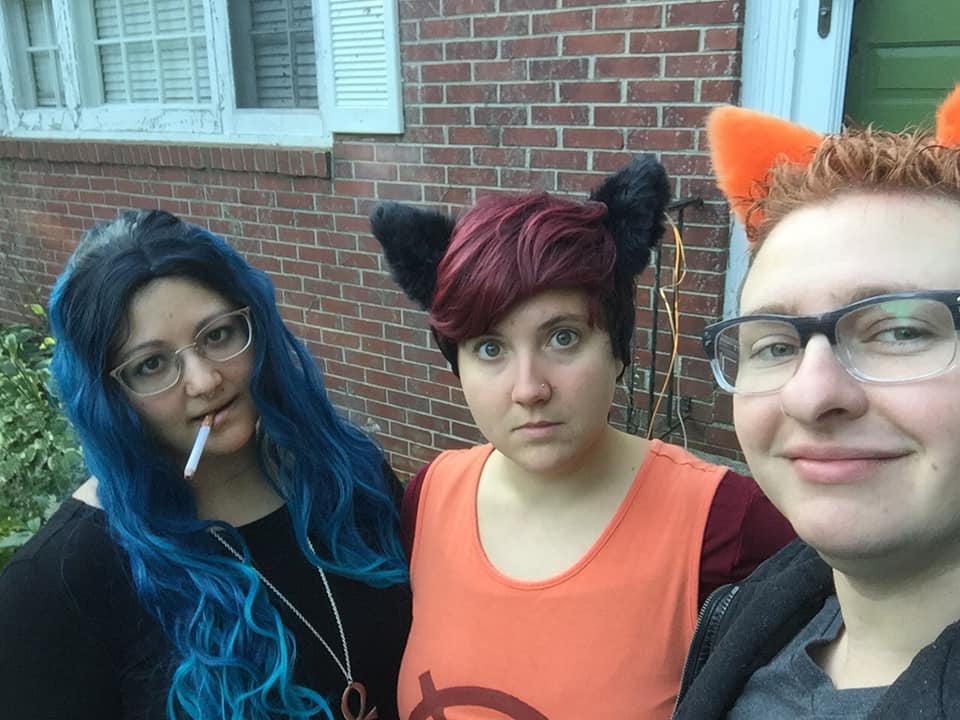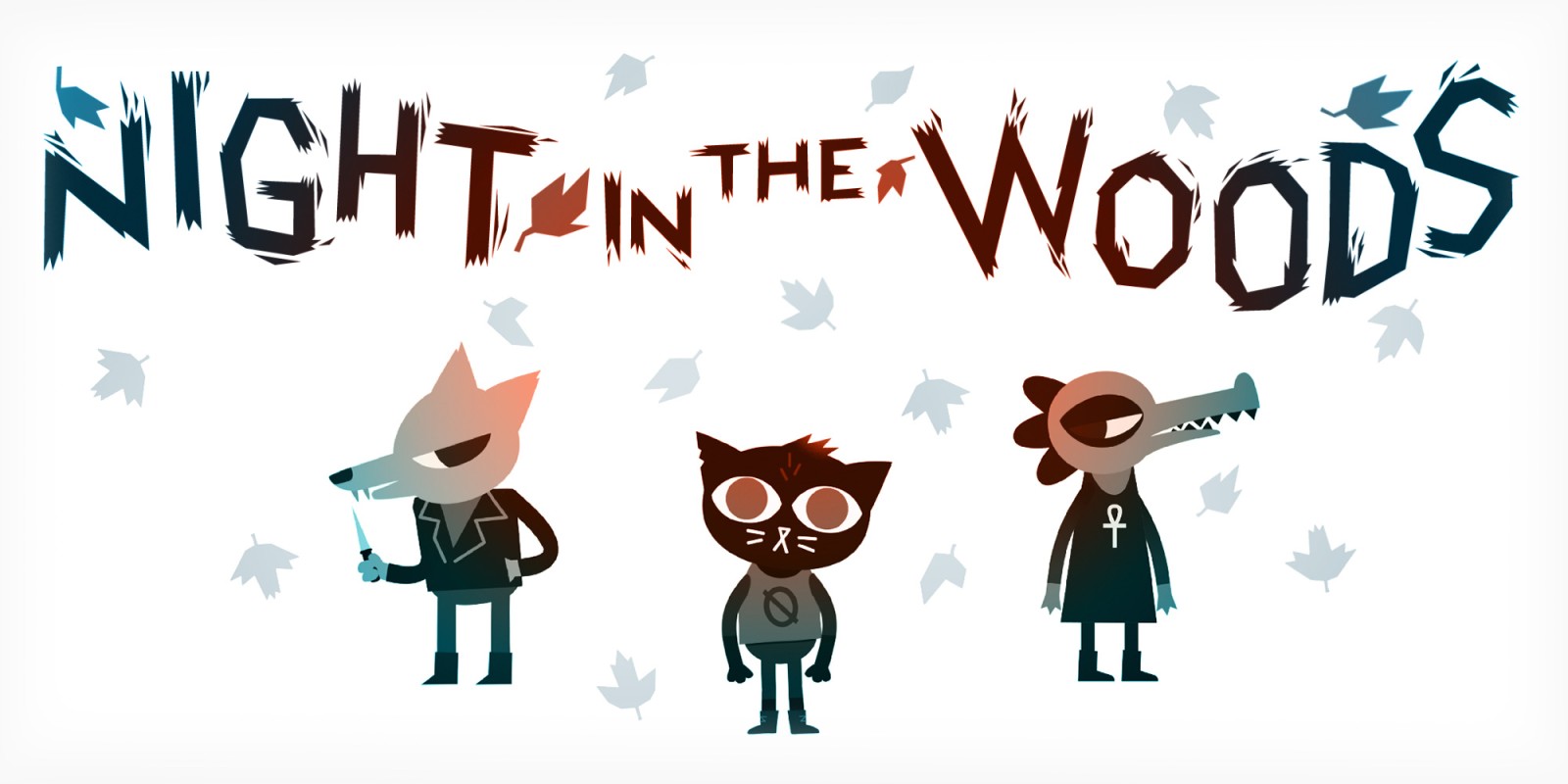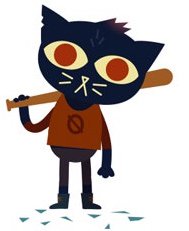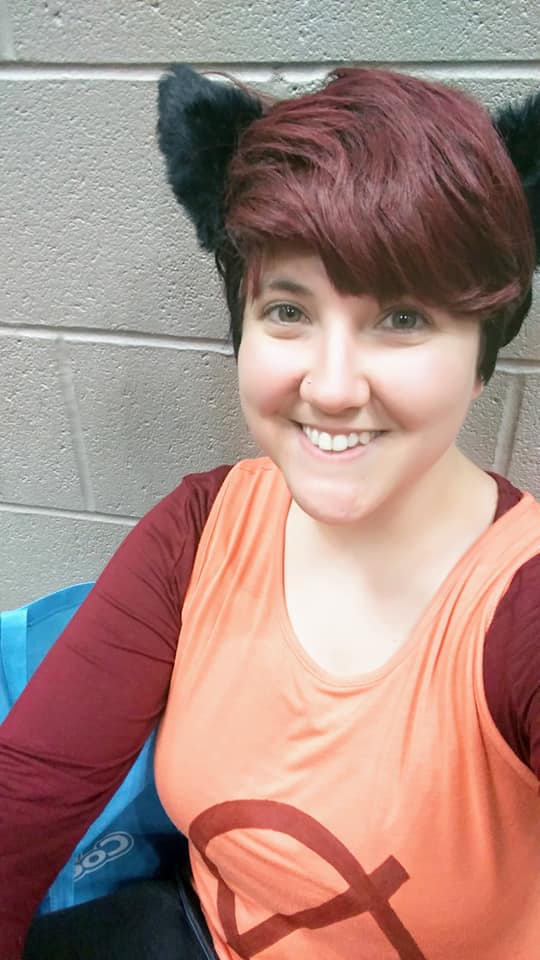I’m not sure what triggered my memory to check The Sketchbook Project’s site for the status of the book of poetry I submitted last year. I think it must have been when I was cleaning up my art desk (an uncharacteristic move, I know) and found the drawer where I’d stowed my first draft of the book, back when the project had been something else, a sort of memoir-esque comic that was too ambitious for me to complete by the deadline.
I was very aware of the deadline, which is why I rebound my sketchbook twice: first with sturdier sketch paper for the comic, then with neon-bright printer paper for my last minute plan change. I’d been given the sketchbook by some beloved friends, and as I am unable to complete any significant task without forcing myself into a procrastination-induced panic, I waited until months after I’d received the gift to put serious work into it.
It was a terrific gift: a little, customizable book I could fill with just about anything and then return to the Brooklyn Art Library, which houses the largest collection of sketchbooks in the world. I was delighted by it, and did a great deal of daydreaming about how to fill it (without making tangible progress, of course). I started getting my ideas on paper in the beginning of 2020, aware of the late summer deadline, but unaware of what 2020 had in store.
I tried my best. I scheduled out my pages, set alarms on my phone to remind myself to work on them, and came up with schemes to create large, artsy-fartsy filler sections. In the end, I just couldn’t do it in the way I’d originally intended. I did my second rebinding and decided to feature some of the poetry I’d written that spring instead so that I’d at least have something to submit.
I was still proud of it, for what it was. I’d worked hard to write a piece of poetry every day during the month of April (National Poetry Month!), and this way, I’d get to kinda-sorta publish some of that work. I took some photos, packaged my book up, and sent it on its way just in time.
Then I forgot about it, because if something isn’t in my direct line of sight, it has a 50% chance of being immediately flushed from my brain, an issue that has only been exacerbated by the pandemic. In this case, I knew it would take a while for the sketchbook to be digitally uploaded, and that I’d get a notification when it was, so I felt safe dismissing it from my mind.
A year passed, and the notification never came. Whatever triggered my memory of the book also compelled me to check on its status. Had it really been a year? Or was it only months ago? Time’s been goopier than usual, so it seemed reasonable to me that I’d submitted more recently than I thought, and that my book might still be in line to be uploaded.
When I logged into the site to check, however, I discovered that my book had never even arrived.
It was just gone.
I sat there stunned for a few seconds before I started to cry. Actually, “cry” may be too gentle of a word for what I was doing… I was bawling. My body suddenly felt so heavy that I just folded forward onto my desk and sobbed and keened and blubbered until my cat finally decided to come chew on my hair, snapping me out of it.
I knew I’d probably never physically hold that book again, but the concept that it was missing from the world in a way I’ll never be able to track sent such a thunderbolt of grief through my heart that I felt actual pain.
I have felt that pain several times in the past few years. Loss is Change’s ugly cousin, and it has visited all of us recently. While change comes with the promise of an exchange, a transformation of one thing into another, loss is just… loss. Something is gone. Nothing inherently takes its place, fills that gap. There aren’t answers or explanations, there is only absence.
I’ve been preoccupied with loss lately. I live in fear of it. I fear losing my job, losing my pets, losing my friends and family, losing my mind. In fact, earlier this year, I was so convinced that I was indeed losing my mind that a therapist proctored a series of tests for me, including an intelligence test. I’d been so scattered and sluggish and forgetful that I assumed my brain was physically deteriorating. I scored fine. I scored well, actually, though I know intelligence isn’t really that simple to measure, and that my various privileges inflated my score. But what if I used to have an even better score? What if my cognitive functions are slowly draining away? What if I finally lose it all?
Of course, the truth is that I will lose it all, one way or another. I am impermanent, which is a concept that’s even harder to comprehend than loss. All I have is right now, and that’s always draining away as well. I won’t get the minutes back. They, too, are lost.
Or are they?
I’ve spent a long time thinking of Change and Loss like those cousins - separate yet connected - when I really should be thinking of them as different states of the same phenomenon. It’s all just change, the universal constant that I struggle so eternally with, but sometimes I must take a more active role in the transformation.
For example, while I may never get back my ever-dwindling minutes, it’s not like they never existed. I exchange each moment for a memory. And when I lose those memories? Well, that’s a bit harder to consider. Just because I can’t remember them, however, doesn’t mean they never happened. Maybe the things I forget will be something someone else remembers. Maybe it’s not all about me in these exchanges.
Maybe it all cascades.
On my (hopefully distant) horizon, I see death, the ultimate transformation. I will lose all that I am that day. I can’t conceive of a greater loss than that… It’s impossible to think about the total absence of self. It’s all I’ve ever known (and damn if I haven’t learned A Lot about myself in the past couple years). The change that happens in my final second on Earth is a change I’ll never know.
But maybe other people will, and that’s what I mean by “it all cascades.” I think of a friend’s friend whom I wish I’d known better and his eagerness to say “Yes, Absolutely” to adventure, and how that shapes my own willingness to be bolder and wilder years later. I think of my grandmother when I pass yard sales or crave a late night bowl of ice cream to enjoy with a good book. I think of another friend every time it rains, and about a specific moment we shared, lying in an alley and letting the water soak us so that we could stand up and see our dry silhouettes for a few seconds before the storm faded them away.
I can only hope that, while I’m still here, I’m creating my own cascades. I am here right now. I have changed, I have lost, and yet I also have the power to transfigure at least some of those losses. I mean, even my name has changed since I put this book together. Maybe it’s good that it only exists here, where I can tell you directly that I’m Gordon now, and I was Gordon then, and Gordon made this book, even if the name on the cover says otherwise.
No one that I know will ever see my poetry book again, but you can see it here, hastily captured as it was, in the world’s smallest digital sketchbook library.
Please enjoy my Poems from April.
